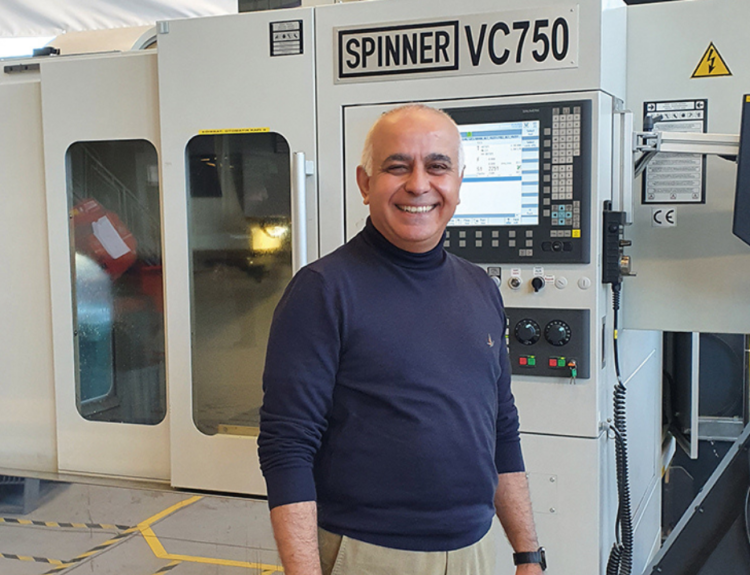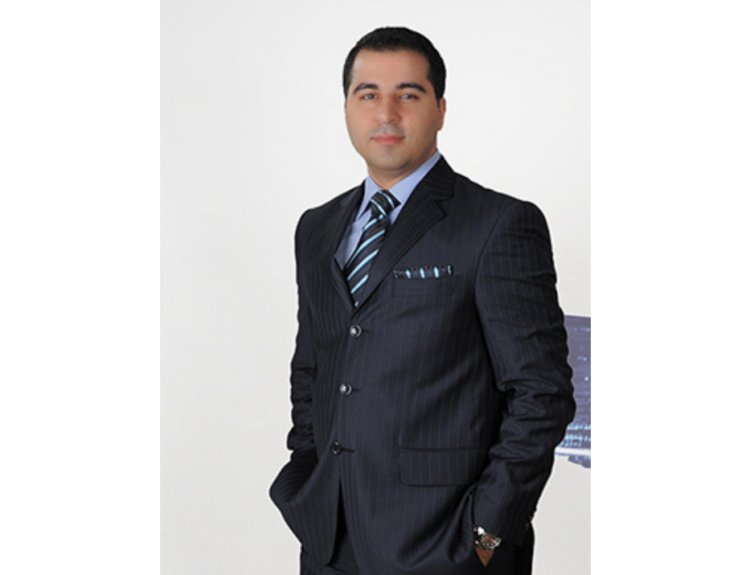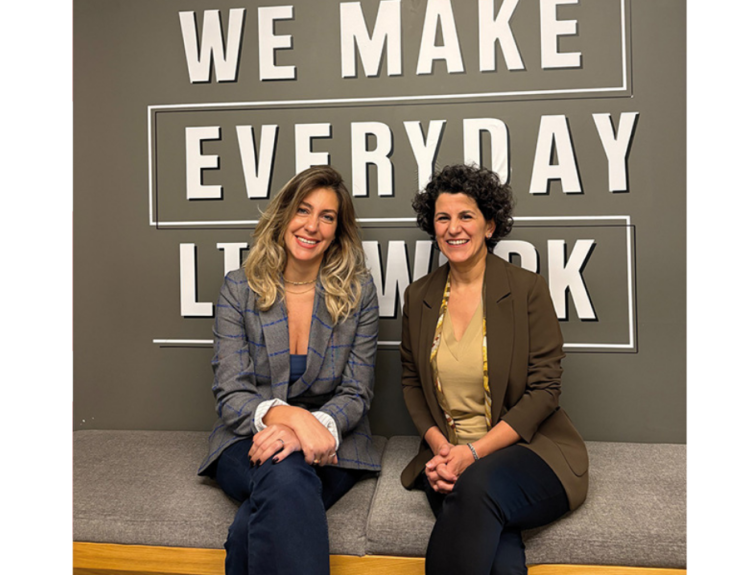Artificial intelligence, expected to create an economic volume of $15.7 trillion globally by 2030, is also among Türkiye’s key agenda items. To discuss Türkiye’s investments in artificial intelligence, businesses’ perspectives on artificial intelligence use, and Türkiye’s artificial intelligence policies, we spoke with Zafer Küçükşabanoğlu, Founder and President of the Artificial Intelligence Policies Association (AIPA) and Founder of AI Diplomacy, who emphasized that artificial intelligence will be the driving force behind economic development.
We conducted an interview with Zafer Küçükşabanoğlu, Founder and President of the Artificial Intelligence Policies Association (AIPA) and Founder of AI Diplomacy, regarding artificial intelligence investments in Türkiye. Providing very important data and information on the subject, Küçükşabanoğlu stated, “Currently, there are 7 unicorns in Türkiye. The term unicorn is used for companies valued at over $1 billion. Increasing this number is a major goal for our country. An increase in the number of unicorns will also lead to a rise in employment in Türkiye.” The government also has a significant goal of positioning Türkiye among the world’s top 10 economies. Achieving this goal without artificial intelligence would be very challenging, as artificial intelligence is expected to generate an economic volume of approximately $15.7 trillion globally by 2030. Therefore, Türkiye needs to further increase its artificial intelligence entrepreneurship to secure a share of this market and enter the top 10 economies. Consequently, we must view artificial intelligence not as a technology of the future, but as a technology of today. If we think of artificial intelligence only as a future technology, we will fall behind in this area. Looking at recent developments, digital transformation and artificial intelligence were the most frequently used terms in the presentations of Vice President Cevdet Yılmaz and many ministers under the Medium-Term Program. Artificial intelligence is being discussed in agriculture, industry, and other sectors. This indicates that artificial intelligence will be the driving force behind economic development” he said.
“If we can transform interest into knowledge and then into entrepreneurial practice, Türkiye will gain significant benefits”
Referring to a study conducted by the Artificial Intelligence Policies Association in Türkiye, Küçükşabanoğlu said, “This study is the first and only one measuring artificial intelligence perception in Türkiye. According to the study, our businesses are aware of artificial intelligence and believe that this technology will impact their operations. To give a percentage, when we ask businesses and the public the definition of artificial intelligence, only 5% of the public can accurately define artificial intelligence. When we asked businesses, the percentage of those who can accurately define artificial intelligence is 35%. Compared to the general public, this shows that businesses have more knowledge about artificial intelligence. While businesses are aware of artificial intelligence and believe it will impact their operations, they are not entirely sure about the steps they should take. We can actually say that there is tremendous interest in artificial intelligence across Türkiye, but this interest needs to be transformed into knowledge. If we can turn this interest into knowledge and then into entrepreneurial practice, Türkiye will gain significant benefits.”
“Artificial intelligence is impacting every field”
Zafer Küçükşabanoğlu, noting the growing importance of artificial intelligence across both macro and micro businesses, stated, “Small businesses, which are the backbone of the Turkish economy, also need to engage with artificial intelligence. Artificial intelligence is transforming not only large companies but all sectors, even the life of a small firm with just five employees. I read a book that said, ‘Artificial intelligence is transforming every sector, from toothbrush manufacturing to tuna fishing.’ In other words, saying ‘I am in the food sector; it doesn’t affect me’ is no longer feasible. Artificial intelligence is impacting every field.”
“Türkiye’s biggest opportunity in artificial intelligence is the 27 million-strong generation Z aged 0-21”
Emphasizing the importance of learning to progress, Küçükşabanoğlu stated, “Instead of getting caught up in a general notion of whether artificial intelligence will take over the world, it is more beneficial to think about how to integrate artificial intelligence into your business. The world, particularly the United States of America and China, views artificial intelligence through a financial lens because artificial intelligence means money, reputation, and adapting to transformation. In Türkiye, significant steps have been taken in the past five years, but artificial intelligence is so dynamic that we must keep up with this dynamism as well. In the 2020 Oxford Insights Government AI Readiness Index Report, Türkiye was ranked 63rd. By 2023, it had risen to 47th place. Türkiye’s biggest opportunity in artificial intelligence is the 27 million-strong Generation Z aged 0-21. If we understand and guide this group and can transform their interest in artificial intelligence into knowledge, Türkiye’s economy will revive. This group will become managers in companies, start businesses, and work in the public sector in the future.”
“We have set the goals; now it’s time to achieve them completely”
Zafer Küçükşabanoğlu stated, “In 2019, the number of entrepreneurs producing artificial intelligence in Türkiye was 75. By 2020, this number increased by 82.7% to 137. In 2021, the number rose by 21.9% compared to 2020, reaching 167. In fact, this number has now increased further. Türkiye has the National Artificial Intelligence Strategy Document, released by the Ministry of Industry and Technology and the Digital Transformation Office in 2021. The government has set goals. There are many targets, and I can summarize the ones related to the economy or that will contribute to the economy as follows: artificial intelligence’s contribution to gross domestic product will be raised to 5%. Türkiye will enter the top 20 in international artificial intelligence rankings. The employment of artificial intelligence in public institutions and organizations will be increased. The number of postgraduate artificial intelligence graduates will be increased. We have set these goals; now it’s time to achieve them completely.”
“People who do not improve themselves may fear artificial intelligence”
In our research, we still encounter a group that has not yet adopted artificial intelligence. When asked the question, “Why are you not considering using artificial intelligence?” they answered:
- 39% say, “It is not suitable for the work we do or our sector.” However, artificial intelligence is suitable for every sector. If it can transform every field, from toothbrush manufacturing to tuna fishing, it can also transform your sector.
- 17.1% say, “We do not need it at the moment.” You might not need it right now, but you will need it very soon.
- 9.8% say, “We have no investment, and even if we did invest, it might require a large investment.” However, a large investment is not necessary for artificial intelligence. You can start step by step.
- 7.3% say, “I do not have technological knowledge.” You need to acquire this knowledge because now, regardless of what you do, you must do it with technology and artificial intelligence.
- 7.3% say, “I do not want to use artificial intelligence because I want to work in a human-centered way.” I would like to note something: The biggest debate around artificial intelligence is loss of jobs. According to reports, artificial intelligence is expected to cause a loss of 85 million jobs globally by 2030, but it will also create 97 million new jobs. So, while artificial intelligence is advancing, people are not necessarily improving themselves. People who do not improve themselves might fear artificial intelligence, but those who do should not be afraid of this technology. Instead of competing with machines, we need to learn to work alongside them.




